Epoxy and PU flooring in Delhi are the two most commonly used types of resinous industrial floors. An age-old question in our industry is what are the differences between the two types of floors and when should we pick one over the other. Before I proceed to explain the differences that I have identified I just want to note that these are general differences for most of the epoxies and polyurethanes out there. There are definitely some exceptions and some companies claim to have products that can overlap the needs of both. (Following some feedback I just want to emphasize that in this article I am referring to regular PU and epoxy coatings for industrial floors, and not PU cement or other types of PU coatings).
Epoxy Flooring For Food Industry
Epoxies and polyurethanes behave differently when exposed to certain chemicals. For example, polyurethanes are the preferred choice in food industries that have exposure to lactic acids. This is the reason why many food processing companies that work in milk, dairy, cheese production choose polyurethanes to protect from organic acids. Epoxies under such conditions may experience corrosion and yellowing. However, when working for example in industries with sulfuric acids (like battery manufacturing etc) epoxy floors are much more resistant than polyurethanes. If you are working industry with heavy exposure to chemicals, check with the manufacturer to see which product is more suitable for your industry.
| Drying Time | 18-24 Hours |
| Flooring Type | Epoxy Flooring |
| Coating Thickness | Depends on Requirement |
| Color | All Colors Available |
| Brand | Ardex or Pantech |
| Size | 1000 |
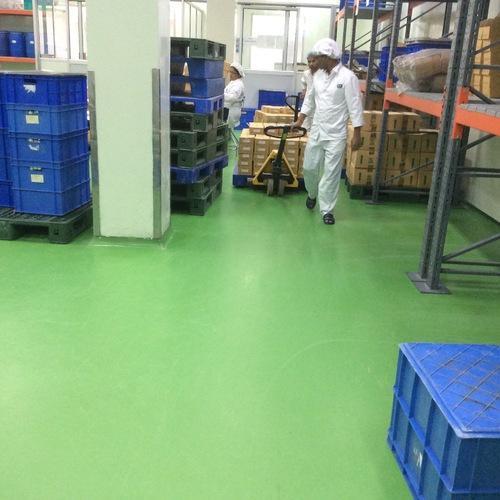
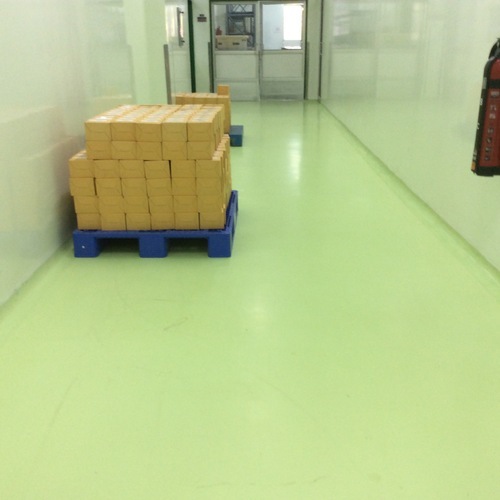
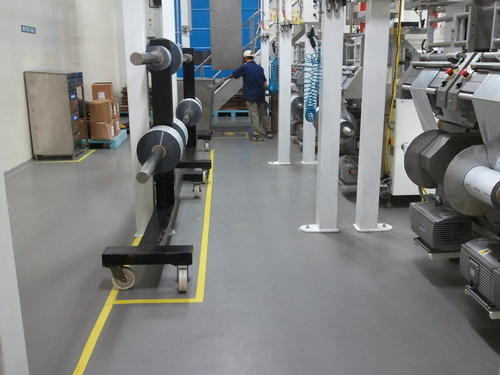
Epoxy & PU Flooring
Epoxy and polyurethane (PU for short) floors are the two most commonly used types of resinous industrial floors. An age-old question in our industry is what are the differences between the two types of floors and when should we pick one over the other. Before I proceed to explain the differences that I have identified I just want to note that these are general differences for most of the epoxies and polyurethanes out there. There are definitely some exceptions and some companies claim to have products that can overlap the needs of both. (Following some feedback I just want to emphasize that in this article I am referring to regular PU and epoxy coatings for industrial floors, and not PU cement or other types of PU coatings)
| Minimum Order Quantity | 500 Square Feet |
| Usage/Application | Industrial |
| Surface Treatment | Self Leveling |
| Grade Standard | Industrial |
| Thickness | Depends on Requirement |
| Pattern | Gangway |
| Brand | Ardex or Pantech |
| Color | All Colors Available |
| Drying Time | 18-24 Hours |
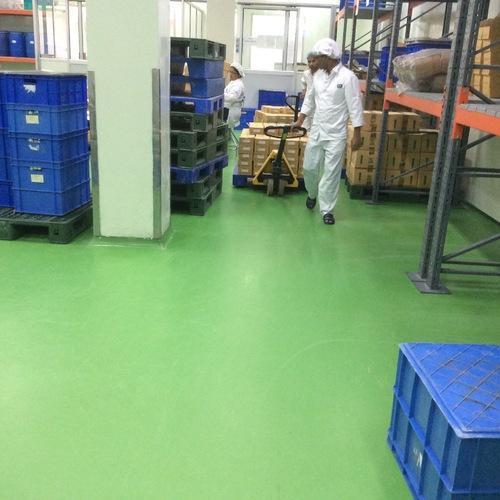
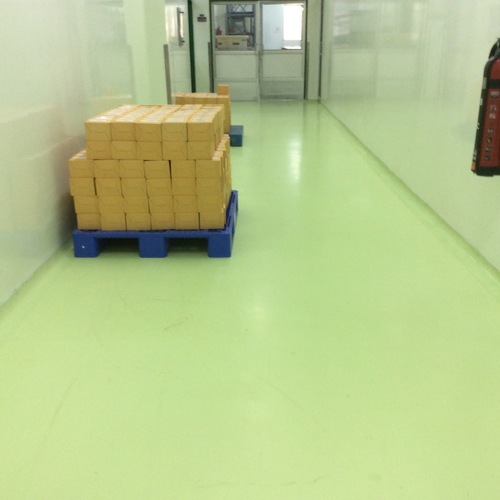
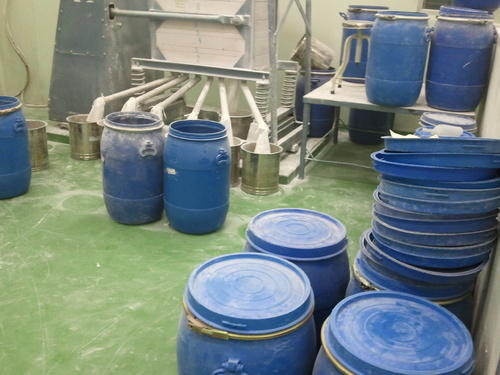
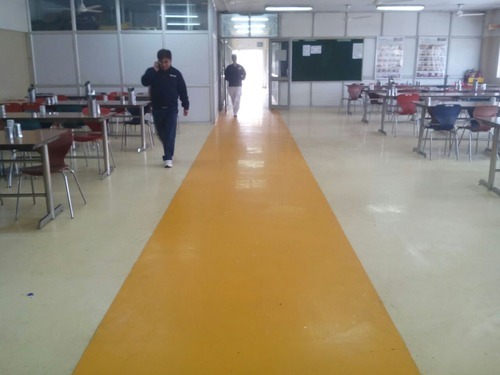
PU Flooring
Industrial floors face particularly high-stress day by day. They also must meet high occupational safety standards have to look well even in demanding conditions especially in meet industries. Meat processing industries deal with the heavy chemical abrasion that occurs from blood and meat residue. Polyurethane systems have proven to be extremely reliable in this application. We are a market leader in providing PU Flooring Services to our valued customers. These are offered at the best rates and with the help of experienced staff members.
Benefits:
- Highly abrasion resistance
- Impact and pressure resistance
- Outstanding chemical/acid resistance
- Good durability
- Food Grade
Specifications:
- Thickness: 2 mm Upto 5 mm
| Minimum Area | No Min Limit |
| Flooring Color | All Colors Available |
| Available Flooring Services | Installation |
| Provide Service In | All Buildings |
| Service Location/City | Anywhere in India |
| Minimum Flooring Area | No Minimum Area |
| Area / Size | Any |
| No. of Year in Business | 16 |
| Application Method | Roller and Spatula |
| Design | As per Requirement |
| Thickness | As per Requirement |
| Usage/Application | Industrial, Commercial |
